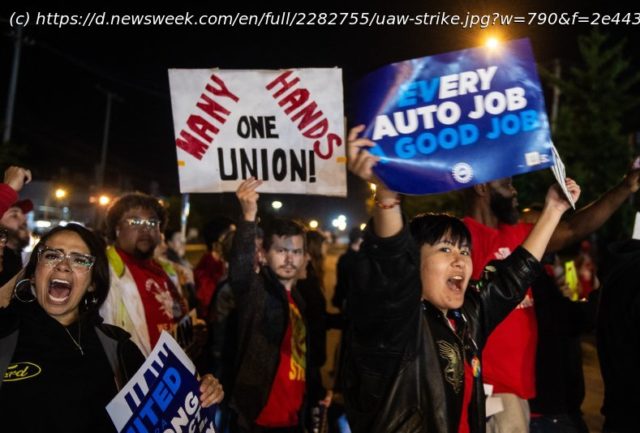The strike could be a temporary setback to the green energy economy transition pushed by the Biden administration and a massive dilemma for the president.
The United Auto Workers (UAW) strike launched early on Friday is likely to be an obstacle to the American car industry’s transition towards electric vehicles pushed by the Biden administration, according to experts—as well as a crucial dilemma for the president.
Earlier this year, the Biden administration pushed forward legislation giving incentives to companies to manufacture electric vehicles (EVs) as part of its landmark climate legislation. While these measures were welcomed by climate activists, they disappointed the UAW, which said that the new rules failed to protect workers in the car industry.
This issue is likely to resurface in the incoming strike and be a thorn in the side of the president, potentially threatening the success of his Green New Deal and forcing Joe Biden to choose between making trade unions happy, or environmentalists.
The unprecedented walk-out was authorized by the UAW after the expiration of its current contract with the „Big Three“ American car makers—General Motors, Ford, and Stellantis—expired at 11:59 p.m. on September 14.
The trade union and the three companies failed to agree on a new deal satisfying UAW’s demand for new contracts that would include pay increases of 40 percent over four years, among other requests.
But the strike could actually be beneficial to the country’s green transition, according to Brauer, helping „dealers in the near term, because they are seeing electric vehicles stack up on their lots.






